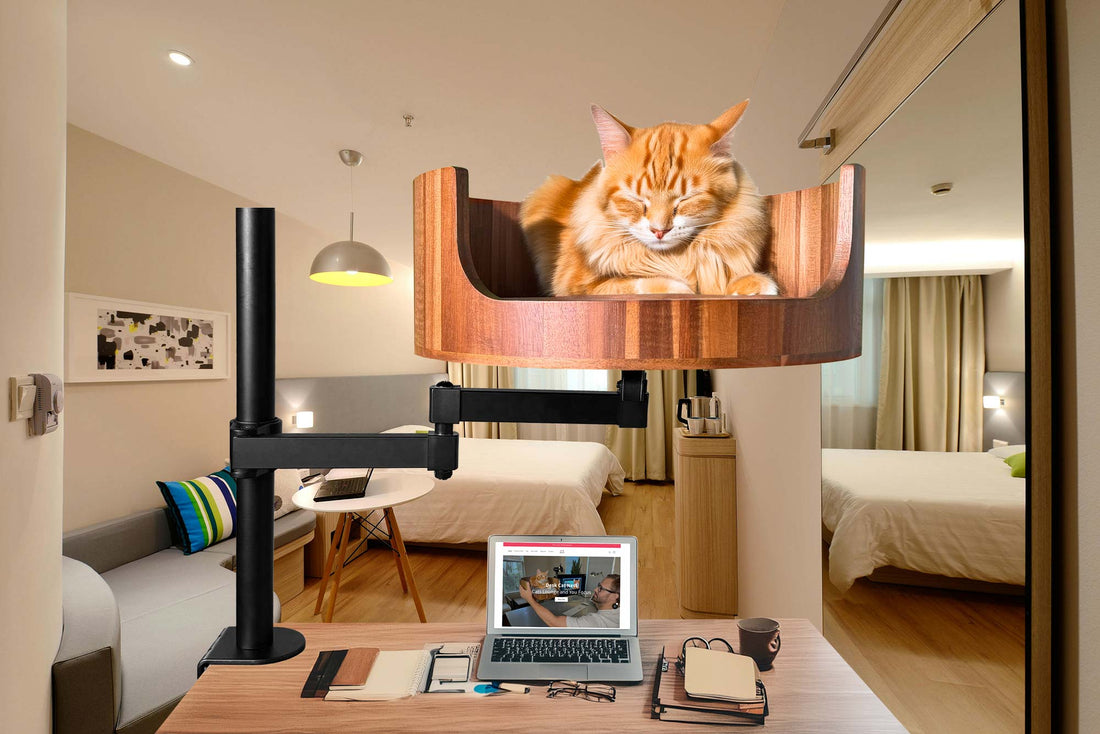
Do Cats Get Boogers? Understanding Feline Nasal Health
Share
Cats are known for their fastidious grooming habits, meticulously cleaning themselves from head to tail. But have you ever wondered if cats get boogers like humans do? Understanding feline nasal health is crucial for cat owners to ensure their pets are in optimal health. In this article, we will delve into the world of cat boogers and explore the common causes of nasal issues in cats.
From sneezing fits to crusty noses, cats can experience a range of nasal issues that may leave owners scratching their heads. By gaining a better understanding of feline nasal health, pet owners can better monitor and care for their furry companions. In this article, we will discuss the causes of nasal discharge in cats, the importance of regular check-ups with a veterinarian, and practical tips for maintaining good nasal health in cats. Stay tuned as we uncover the mystery behind cat boogers and how to ensure your feline friend's nose stays clean and clear.
1. Cats do not have boogers like humans do, but they can experience nasal issues such as discharge, congestion, and sneezing.
2. Feline nasal health is crucial for their overall well-being, as respiratory problems can impact their quality of life.
3. Common causes of nasal issues in cats include allergies, infections, foreign objects, and even dental problems.
4. Regular monitoring of your cat's nasal health, along with prompt veterinary care when needed, can help prevent worsening conditions.
5. Understanding feline nasal health can help cat owners recognize potential issues early and provide appropriate care for their furry companions.
What are Boogers?
Boogers are dried nasal mucus that can be found in the nasal passages of cats. They are made up of a combination of water, salts, proteins, and debris from the respiratory system. Boogers serve as a way for the body to trap and remove particles, such as dust or bacteria, from the air before they enter the respiratory system.
Do Cats Get Boogers?
Yes, cats can get boogers just like humans. Cats produce mucus in their nasal passages to help trap particles and keep their respiratory system healthy. In some cases, cats may have an excessive amount of boogers due to allergies, infections, or other underlying health issues. It's important to monitor your cat's nasal health and consult with a veterinarian if you notice any changes in their booger production.
Common Causes of Boogers in Cats
There are several common causes of boogers in cats, including respiratory infections, allergies, foreign objects in the nasal passages, and dental issues. Respiratory infections, such as feline upper respiratory infections, can lead to an increase in mucus production and boogers. Allergies to pollen, dust, or mold can also cause nasal congestion and booger formation in cats.
How to Care for Your Cat's Nasal Health
To help prevent excessive boogers in your cat, it's important to maintain their overall health and hygiene. This includes providing a clean and dust-free environment, regular grooming to remove debris from their fur, and keeping up-to-date with their vaccinations to prevent respiratory infections. If you notice any changes in your cat's booger production or nasal health, be sure to consult with a veterinarian for proper diagnosis and treatment.
Desk Cat Nest FAQ
Do cats get boogers?
Yes, cats can get boogers just like humans. These are typically caused by dust, allergies, or respiratory infections.
Can the Desk Cat Nest help with my cat's boogers?
While the Desk Cat Nest is a comfortable sleeping spot for your cat, it is not specifically designed to treat or prevent boogers. However, providing a clean and cozy environment for your cat can help maintain their overall health.
What should I do if I notice excessive boogers in my cat?
If you notice an increase in your cat's boogers or if they are accompanied by other symptoms like sneezing or coughing, it's best to consult with a veterinarian. They can determine the underlying cause and provide appropriate treatment.
How often should I clean the Desk Cat Nest to prevent boogers?
Regular cleaning of the Desk Cat Nest is important to prevent the buildup of dust and allergens that can contribute to boogers. We recommend cleaning the nest at least once a week, or more frequently if necessary.
Are there any specific products I should use to clean the Desk Cat Nest?
You can use a mild detergent or pet-safe disinfectant to clean the Desk Cat Nest. Be sure to choose products that are safe for cats and allow the nest to dry completely before allowing your cat to use it again.
In conclusion, Desk Cat Bed is a valuable choice for cat owners looking to alleviate their feline's boogers. This innovative bed provides a comfortable and cozy sleeping space for cats, encouraging them to rest with their heads elevated, which can help reduce the buildup of mucus and boogers in their nasal passages. Additionally, the raised design of the Desk Cat Bed promotes better airflow, further aiding in the prevention of congestion. Overall, this product offers both comfort and health benefits for cats, making it a must-have for any pet owner concerned about their cat's well-being.



















































